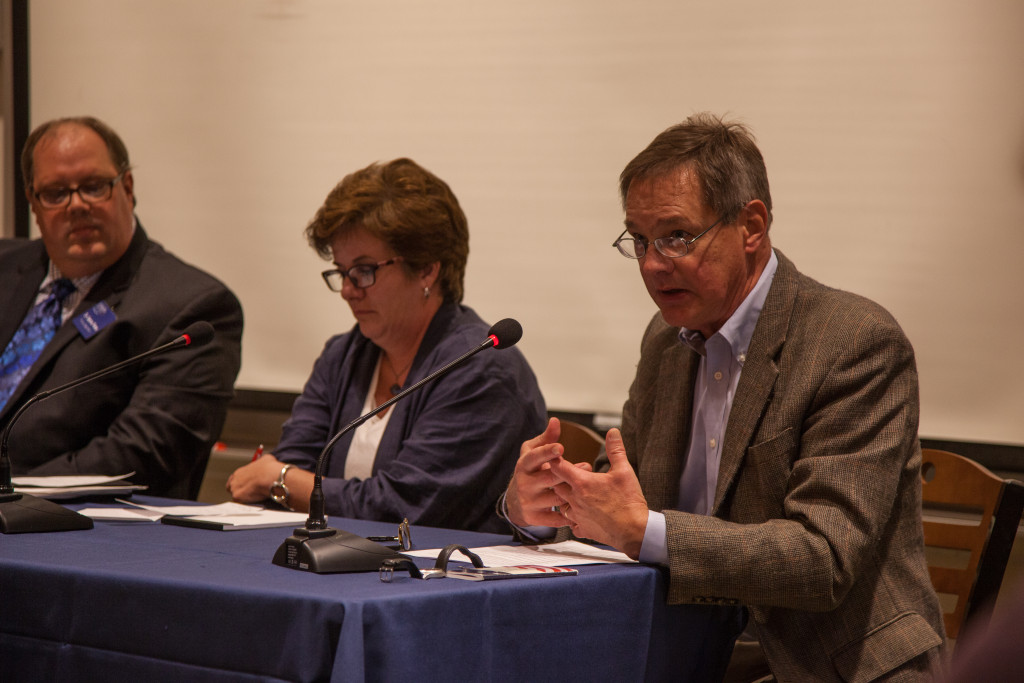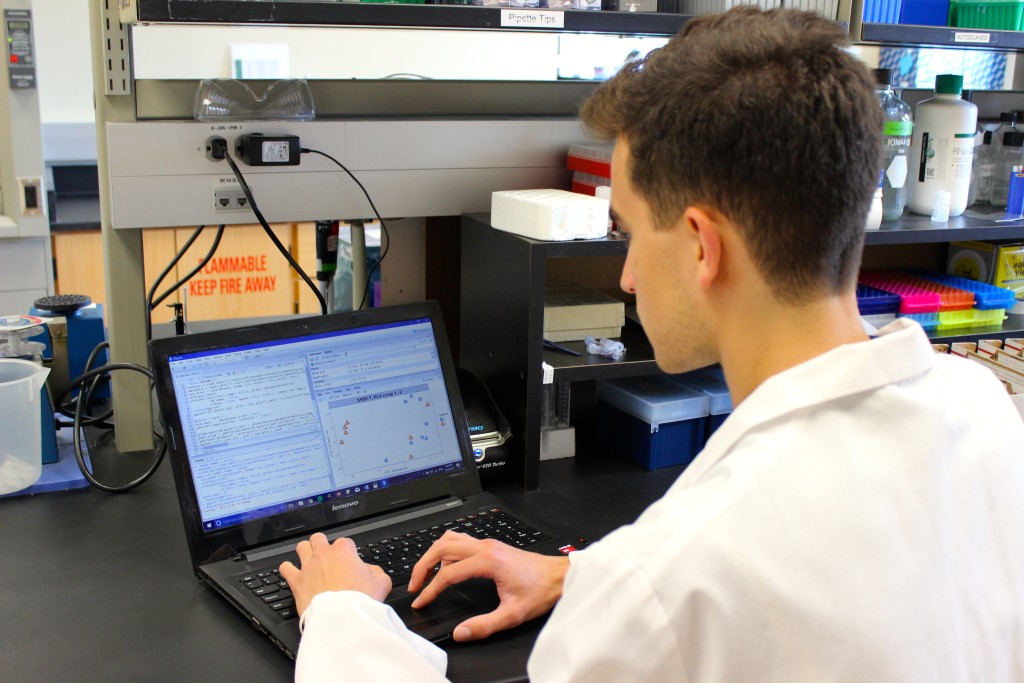Recent Posts
Categories
National Women’s History Month: Juniata Alumni
March is Women’s History Month in the United States. All over campus we are having events such as “Boobie Bingo” and “Java, Poetry and Monologues” to celebrate great women in history and to bring attention to the women’s rights movement.
This past Saturday night I was in Baker Refractory for Boobie Bingo and they had placed pieces of paper on each table that had lists of notable women in history who were trailblazers. Women such as Pearl S. Buck who was the first woman to win the Nobel Prize for literature and Sandra Day O’Connor who was the first woman to be appointed to the Supreme Court. Reading about all these amazing women in history got me all motivated to do something great with my future. Maybe I’ll write a novel like 2014 Juniata graduate Natasha Lane or run for a political office like Carol Eichelberger Van Horn a ’79 graduate of Juniata who was the first woman elected to the Court of Common Pleas of the 39th Judicial District of PA.
After failing to win a single bingo game, I returned to my cozy dorm room and opened up my laptop to do some research. I scrolled through Juniata’s distinguished alumni page and read names and accomplishments such as Heidi M. Cullen, Ph.D. ’92 the Chief Executive Officer and Director of Communications, Climate Central, Princeton University; Former Host, “Forecast Earth with Dr. Heidi Cullen,” The Weather Channel and Former Scientist, National Center for Atmospheric Research and the International Research Institute for Climate Prediction or Miriam Smith Wetzel, Ph.D. ’52 a Faculty Member at Harvard Medical School; Member of the team that developed the new medical school curriculum and Winner of Miss Pennsylvania, 1952.
After reading about the forty or so women listed on the distinguished alumni list, I wanted to find out more about what women alumni of Juniata have achieved. I opened up my LinkedIn and found the Juniata Alumni page and started scrolling. There were hundreds of alumni and countless accomplishments for all of them. I can’t list them all here but some notable ones that I saw were women such as Clarissa P Diniz, a 2014 graduate of Juniata College who is currently studying at Johns Hopkins Medical Center; Kelsey Kohrs, an associate dolphin trainer and water science operator at Discovery Cove; and Heather Fisher a 2007 graduate who is now a facilitator on the Multi-Disciplinary Investigational Team for the District Attorney/Government.
Juniata provides you with the education and the opportunities to achieve great things. They offer chances for students to collaborate with professors on research projects and incorporate real life objectives into the classroom to help build your portfolio and your resume. All I can say is that in ten or twenty years, I plan to be one of the women on Juniata’s distinguished alumni list.
Link to the Distinguished Alumni Page: http://www.juniata.edu/about/distinguished-alumni.php
Finding a New Passion Through Mentorship and Guidance
At one of my recent lacrosse practices we did a team building activity where we all listed a hero of ours, a hardship we’ve faced, and a highlight of our life. It took all of us a pretty long time to brainstorm up a response to each of those categories, but during my thought process I tried to narrow things down and think about it in just the context of my Juniata career thus far (which isn’t that long considering that I’m only a sophomore) and I found that the answers to all three of those questions could be rooted back to one thing, one person.

I came into Juniata on a pre-medicine track set on becoming a doctor, it was what I had wanted since I was five years old. However, I also knew that I had other passions so despite being pre-med my POE was still in politics. But, the more politics courses I took the less sure I felt about going to medical school; I was enjoying Intro to American Government far more than my chemistry classes. It wasn’t until my first semester of sophomore year that I met the professor who really helped me sort all of that out, Dr. Jack Barlow. I was in his American Political Thought class and something about his teaching style and quiet but witty and sarcastic humor really appealed to me. I eventually asked him to be my adviser and I don’t think I’ve made a better decision yet at Juniata.
Dr. Barlow has helped me through one of the largest conflicts in my life. He helped me to realize that giving up the dream I’d held for fourteen years of my life wasn’t really a loss, but an opportunity to explore something that didn’t just fascinate me but that also made me happy. He’s the perfect blend of supportive and challenging as an adviser and as a teacher. I know for a fact that I couldn’t count on one hand, and maybe not even on two hands, the number of times I’ve gone into his office in crisis mode and left feeling completely relaxed. Something about his calming demeanor and his odd knack of always magically appearing when you’re stressed out beyond belief seems to be able to resolve any problem. Dr. Barlow is basically everything your high school teachers always said you won’t find in a professor- he’s understanding, approachable, supportive, and impressively interested in his students’ lives. He’s the kind of person who asks how you’re doing and actually wants an honest answer (he’ll even call you out if he thinks you’re lying). He’s pushed me not only academically or in class, but also on a personal level to help me realize and actualize future goals. Dr. Barlow has been one of the best parts of my Juniata career thus far, and I feel pretty lucky to go to a college where professors of his quality aren’t an anomaly, but rather are the majority.
Research at Juniata: Sharing your passion with the world
Writing a thesis is hard. It is the culmination of all the hard work and late nights that you put into your research project to make it the shining testament to your will power, work ethic and ability to muscle your way through writer’s block and procrastination. It’s a long and arduous task and at the end of each day your head is spinning from all the scientific papers you’ve come through just to provide evidence for on paragraph. Yes, it’s difficult and at times all I want to do is crawl into my cozy bed and watch the snow fall outside of my window, dreaming of my childhood where my greatest worry was if I was going to have enough snow to build an igloo. Having the opportunity to write a paper that brings together the project you have been working on for months or years is rather unique, at least from my perspective.

You see, once I complete my thesis and defend it at Thesis Night in late April, I’ll be submitting it for publication to a bonafide science journal. That isn’t something that most undergraduates can do, especially if they attend a larger institution where most of the research projects are carried out by graduate students. Thankfully, Juniata doesn’t have any graduate students, barring those accountants, so young aspiring researchers or doctors, or even literary scholars and future orators all can conduct graduate level research at the undergraduate level. If you continue your project long enough, or compile enough evidence to draw a conclusion from your data you can compile it into a thesis and maybe can submit your manuscript to a journal within your field. Graduate and medical school admittance committees look very highly on that. It shows you are highly motivated and exceptional work ethic.
An additional benefit for the aspiring researcher that is considering Juniata is our annual Liberal Arts Symposium (LAS) which we will be hosting on April 19th this year. Students doing research in every department have an opportunity to present on the progress they have made on their projects either through a poster or through a presentation. When you wade through the masses that crowd around the posters and you sit in on presentations throughout the day, you really begin to understand the scope of research that is offered here at Juniata. One of the most beautiful aspects of Juniata, to me at least, is the ability for anyone in any department to conduct research on a subject that is near and dear to their heart. And they can present their findings to the school, and sometimes the rest of the world. At Juniata we are all about writing our own story and part of that, for many students, is the ability to write the story of their research.
Now if you’ll excuse me, I have another stack of papers to read through.
The Cross-section of Science and Philosphy
Zachary Hesse is a writer, editor, and sailor finishing a degree in Philosophy at Juniata College. You can find more details and works of his at zacharyhesse.com.
